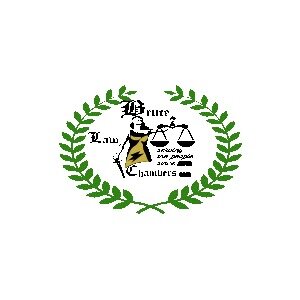Best Defamation Lawyers in Kingstown
Share your needs with us, get contacted by law firms.
Free. Takes 2 min.
List of the best lawyers in Kingstown, Saint Vincent and the Grenadines
About Defamation Law in Kingstown, Saint Vincent and the Grenadines
Defamation law in Kingstown, Saint Vincent and the Grenadines is focused on protecting the reputation of individuals against unjust harm caused by false statements. Defamation consists of two types: libel, which pertains to written statements, and slander, which relates to spoken statements. The core aspect of defamation is the defamatory statement itself, which must be proven to be false, damaging, and made without adequate justification or privilege. In Kingstown, as with many other jurisdictions, the balance between freedom of speech and protecting individuals' reputations is a delicate and complex area of the law.
Why You May Need a Lawyer
There are several scenarios where seeking legal assistance is essential in defamation cases, including:
- When you are accused of making a defamatory statement and need to defend yourself.
- If your reputation has been unfairly tarnished by false statements made about you, which can affect you personally or professionally.
- If you receive a defamation lawsuit or a threat of litigation against you.
- When attempting to understand the implications of defamation in the context of media or publication work.
- To navigate potential defenses such as truth, fair comment, or privilege.
Having a lawyer can help interpret complex legal jargon, craft a strong defense or offense, and protect your rights efficiently.
Local Laws Overview
In Kingstown, Saint Vincent and the Grenadines, defamation is primarily governed under the civil law system with certain aspects historically influenced by common law principles. The critical legal considerations include:
- Burden of Proof: The burden lies with the plaintiff to demonstrate that the statement was false, defamatory, and made without legal justification.
- Defenses: Common defenses include truth, fair comment on a matter of public interest, and qualified privilege.
- Remedies: If defamation is proven, remedies may include damages for loss of reputation, injunctions preventing further defamatory statements, or public retractions.
- Limitation Period: There is a statutory time limit within which to bring forth a defamation claim, emphasizing timely action.
Frequently Asked Questions
What constitutes defamation in Saint Vincent and the Grenadines?
Defamation involves a false statement communicated to a third party that damages a person's reputation, without any legal justification.
Is it possible to defame a company?
Yes, creating false statements about a company that damage its business reputation may also constitute defamation.
What is the difference between libel and slander?
Libel refers to defamation through written or published statements, while slander refers to spoken defamation.
What are the potential defenses against a defamation claim?
Common defenses include truth, privilege (absolute or qualified), and fair comment on matters of public interest.
How long do I have to file a defamation lawsuit?
Defamation claims are subject to a limitation period by law, necessitating timely filing to avoid the case being time-barred.
Can public figures sue for defamation?
Yes, public figures can sue for defamation, although they must often prove the additional element of actual malice.
Are online statements considered defamatory under local law?
Yes, defamatory statements made online can be actionable under local defamation laws.
What type of damages can I recover in a defamation lawsuit?
Damages can include compensation for reputational damage, emotional distress, and economic losses.
Will a public retraction affect the defamation claim?
A public retraction can potentially mitigate damages but does not absolve liability for defamation.
Do I need to prove the defamatory statement caused me harm?
Yes, proving that the defamatory statement caused damage is an essential aspect of establishing a successful claim.
Additional Resources
For further assistance and understanding of defamation laws, consider reaching out to or consulting:
- The Eastern Caribbean Supreme Court for published judgments and resources.
- Local Bar Associations for referrals to experienced defamation lawyers.
- The National Telecommunications Regulatory Commission (NTRC) for guidance on digital communications and defamation.
Next Steps
If you believe you have a defamation case or need defense against one, it's crucial to take the following steps:
- Document all instances and communications related to the defamatory statement.
- Contact a qualified local attorney specializing in defamation law for a consultation.
- Review potential legal defenses or claims with your lawyer.
- Act swiftly to ensure compliance with any applicable limitation periods.
Seeking timely legal advice can help protect your rights and provide a strategic approach to your defamation concerns.
Lawzana helps you find the best lawyers and law firms in Kingstown through a curated and pre-screened list of qualified legal professionals. Our platform offers rankings and detailed profiles of attorneys and law firms, allowing you to compare based on practice areas, including Defamation, experience, and client feedback.
Each profile includes a description of the firm's areas of practice, client reviews, team members and partners, year of establishment, spoken languages, office locations, contact information, social media presence, and any published articles or resources. Most firms on our platform speak English and are experienced in both local and international legal matters.
Get a quote from top-rated law firms in Kingstown, Saint Vincent and the Grenadines — quickly, securely, and without unnecessary hassle.
Disclaimer:
The information provided on this page is for general informational purposes only and does not constitute legal advice. While we strive to ensure the accuracy and relevance of the content, legal information may change over time, and interpretations of the law can vary. You should always consult with a qualified legal professional for advice specific to your situation.
We disclaim all liability for actions taken or not taken based on the content of this page. If you believe any information is incorrect or outdated, please contact us, and we will review and update it where appropriate.








